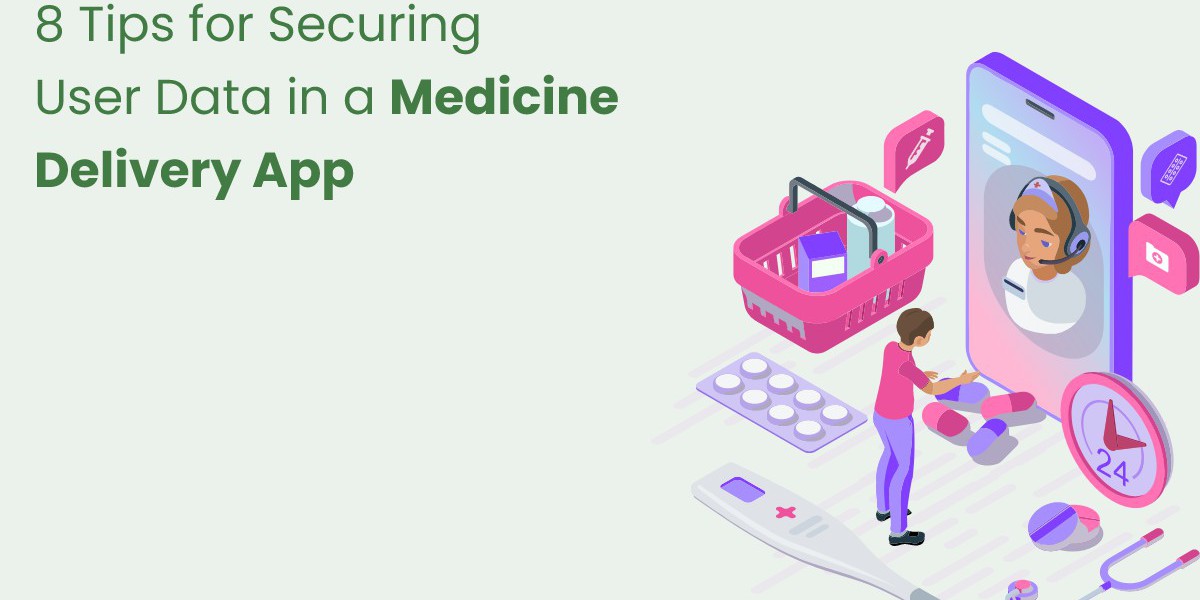In the rapidly evolving landscape of digital health, medicine delivery apps have become indispensable tools for patients seeking convenient access to their prescribed medications. However, the sensitive nature of the information handled by these apps necessitates robust measures to safeguard user data. From preventing unauthorized access to ensuring compliance with privacy regulations, here are eight essential tips for securing user data in a medicine delivery app:
Implement Strong Authentication Mechanisms
The foundation of data security in any application lies in robust authentication mechanisms. Implement multi-factor authentication (MFA) to verify the identity of users before granting access to sensitive information. This approach adds an extra layer of security by requiring users to provide multiple forms of verification, such as passwords, biometric data (e.g., fingerprint or facial recognition), or one-time passcodes sent via SMS or email. By incorporating MFA into your app, you can significantly reduce the risk of unauthorized access to patient data.
Employ End-to-End Encryption
In addition to encrypting data transmission, consider implementing end-to-end encryption to protect user data from unauthorized access at every stage of its journey. End-to-end encryption ensures that data is encrypted on the user's device and can only be decrypted by the intended recipient, providing an additional layer of security against interception and unauthorized access. By adopting end-to-end encryption in your medicine delivery app, you can ensure that user data remains confidential and secure, even in the event of a security breach.
Implement Secure Storage Practices
Secure storage of user data is critical for preventing unauthorized access and data breaches. Utilize secure databases and storage solutions to store sensitive information such as user credentials, medical records, and payment details. Implement encryption-at-rest to encrypt data stored on servers or in databases, ensuring that even if attackers gain access to the storage infrastructure, the data remains unreadable and secure. Additionally, regularly audit and monitor access to sensitive data to detect and mitigate any unauthorized access attempts promptly.
Conduct Regular Security Audits
Regular security audits and penetration testing are essential for identifying and addressing vulnerabilities in your medicine delivery app's security infrastructure. Engage third-party security experts to conduct comprehensive security assessments and penetration tests to identify potential weaknesses in your app's defenses. By proactively identifying and addressing security vulnerabilities, you can strengthen your app's security posture and minimize the risk of data breaches and cyber attacks.
Educate Users About Security Best Practices
User education plays a crucial role in maintaining the security of your medicine delivery app. Provide users with guidance on security best practices, such as choosing strong passwords, enabling biometric authentication where available, and avoiding sharing sensitive information over unsecured networks. Additionally, educate users about the importance of keeping their app and device software up-to-date to ensure they receive the latest security patches and updates.
Have a Response Plan for Security Incidents
Despite your best efforts to secure your medicine delivery app, security incidents may still occur. Have a comprehensive incident response plan in place to quickly and effectively respond to security breaches or data leaks. Define clear procedures for detecting, containing, and mitigating security incidents, as well as communicating with affected users and regulatory authorities. By having a well-defined incident response plan in place, you can minimize the impact of security incidents and maintain user trust in your app.
Conclusion
In conclusion, securing user data in a medicine delivery app requires a multi-faceted approach that encompasses robust authentication mechanisms, encryption, compliance with privacy regulations, secure storage practices, regular security audits, user education, and incident response planning. By implementing these eight essential tips, you can effectively protect patient confidentiality and maintain the trust of your app's users in an increasingly digital healthcare landscape.



